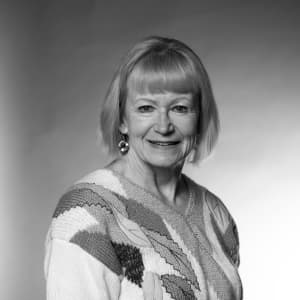7 High-Demand Nursing Certifications
 Credit: Getty Images
Credit: Getty ImagesNursing certifications are an invaluable career tool if you’re looking for a promotion or moving into a specialty area. But with so many possible certifications, how do you choose?
We spoke with three experienced nurses to see which certifications are the most desirable in 2021.
Nurses Recommend These Top Nursing Certifications and Career Specialties
Nursing certifications demonstrate that you have mastered a particular specialty in nursing and can safely practice within that specialty. They also show your employer that you value professional development and best practice in your focus area.
Nursing certifications have different prerequisites for nurses, but all require an active and unencumbered nursing license, graduation from an accredited nursing school, and passing an exam. Learn more about which nursing certifications nurses recommend below.
Critical Care Registered Nurse Certification
Description: Critical care registered nurse (CCRN) certification prepares you to treat the most serious injuries or illnesses.
Requirements: Requirements include either two years of nursing experience with 1,750 hours in direct care of acute/critical adult patients or five years with a minimum of 2,000 hours in direct care of acute/critical adult patients, plus the examination.
Nurse Recommendation: “The CCRN certification is a very popular certification for registered nurses to obtain. This extra certification is often required by employers and covers all acute and critical care specialties, making it the ‘jack of all trades’ of RN certifications,” says Jenna Liphart Rhoads, BN, MS, Ph.D.
Certified Emergency Nurse
Description: A certified emergency nurse (CEN) is one of the nursing certifications for critical care patients. You can work in emergency departments with the most critically injured or ill patients from all age groups.
Requirements: The Board of Certification for Emergency Nursing recommends but does not require two years of emergency nursing experience before sitting for the CEN exam.
Nurse Recommendation: “The CEN is the cornerstone of every emergency department where the RN is recognized as having the knowledge, skills, and abilities to perform competent emergency nursing care,” Nicholas McGowan, a nurse educator, comments.
Progressive Care Nursing Certification
Description: With this nursing certification, you can provide direct care to acutely ill adult patients. These patients often do not need to be in an intensive care unit but still need a higher level of care than in a standard hospital unit.
Requirements: Requirements include either two years of nursing experience with 1,750 hours in direct care of acute/critical adult patients or five years with a minimum of 2,000 hours in direct care of acute/critical adult patients, plus an exam.
Nurse Recommendation: McGowan notes this is a flexible certification.
“Nurses interested in this certification might work in areas such as intermediate care, direct observation, stepdown, telemetry, transitional care, or emergency departments,” he says.
Family Nurse Practitioner Certification
Description: This nursing certification is for advanced practice registered nurses who want to work in family practice. Family nurse practitioners (FNPs), like other nurse practitioners, are qualified to work as primary care providers.
Requirements: For this nursing certification, you must graduate from an accredited master’s or higher-level FNP program and pass a multiple-choice examination.
Nurse Recommendation: Robin Squellati, Ph.D., faculty member in Walden University’s master of science in nursing program, recommends this nursing certification for job prospects.
“The number of nurse practitioners is expected to grow by 52% over the next eight years,” Squellati says. She explains the reason for this growth is because “there are many physicians who want to specialize instead of going into primary care, where the salary is not as high.” NPs as primary care providers is also growing because they offer considerable cost savings to patients, healthcare organizations, and the entire health system.
Psychiatric Mental Health Nurse Practitioner Certification
Description: Nursing certification as a psychiatric mental health nurse practitioner qualifies you to work as an NP for psychiatric and mental health conditions. Like other NPs, nurses with this certification can diagnose conditions and prescribe treatments.
Requirements: You must graduate from an accredited psychiatric mental health nurse practitioner (PMHNP) master’s or doctoral nursing program and pass the certification exam through the American Nurses Credential Center. The PMHNP program must include a minimum of 500 faculty supervised clinical hours.
Nurse Recommendation: “The field is diverse and broad,” Squellati comments, adding that this is a great certification as mental healthcare needs are growing.
Certified Nurse Educator
Description: Nursing certification as a certified nurse educator prepares you to teach other nurses, either in a nursing school or as an in-house educator within a hospital or health system.
Requirements: In addition to passing an exam, this nursing certification requires a master’s or doctoral degree in nursing plus coursework in nursing education, such as nine hours of graduate work in education or a postmaster’s education certification.
Nurse Recommendation: Squellati points out the need for nursing faculty to meet the growing demand for nurses.
“There are not enough nurse educators due to academic requirements, lower compensation compared to other nursing positions, and an older nursing workforce,” Squellati says.
Adult Nurse Practitioner Certification
Description: With an adult NP certification, you can work as a primary care provider with authority to diagnose conditions and prescribe treatments.
Requirements: This nursing certification is available only for renewal. Applicants must have graduated from a board-certified program and maintain continuing education requirements, including at least 25 hours in pharmacology.
Nurse Recommendation: “This certification is popular because it prepares nurse practitioners to be able to care for adult and geriatric patients in both inpatient and outpatient settings,” Rhoads comments.
Popular MSN Programs
Learn about start dates, transferring credits, availability of financial aid, and more by contacting the universities below.
Meet Our Contributors

Jenna Liphart Rhoads is a nurse, educator, and writer who has earned a BSN, an MS, and a Ph.D. in nursing education. She works for Nursetogether.com, a website providing trustworthy information on nursing and healthcare education.

Nicholas McGowan is a nurse educator and teaches review courses for nurses looking to get their CCRN. The American Association of Critical-Care Nurses is the largest specialty organization in the country with over 95,000 acute and critical care nurses currently certified worldwide.

Robin Squellati is a faculty member in Walden University’s master of science in nursing program. Squellati is a certified nurse practitioner and a veteran of the U.S. Air Force, where she served as a nurse for 28 years.
Page last reviewed July 30, 2021
